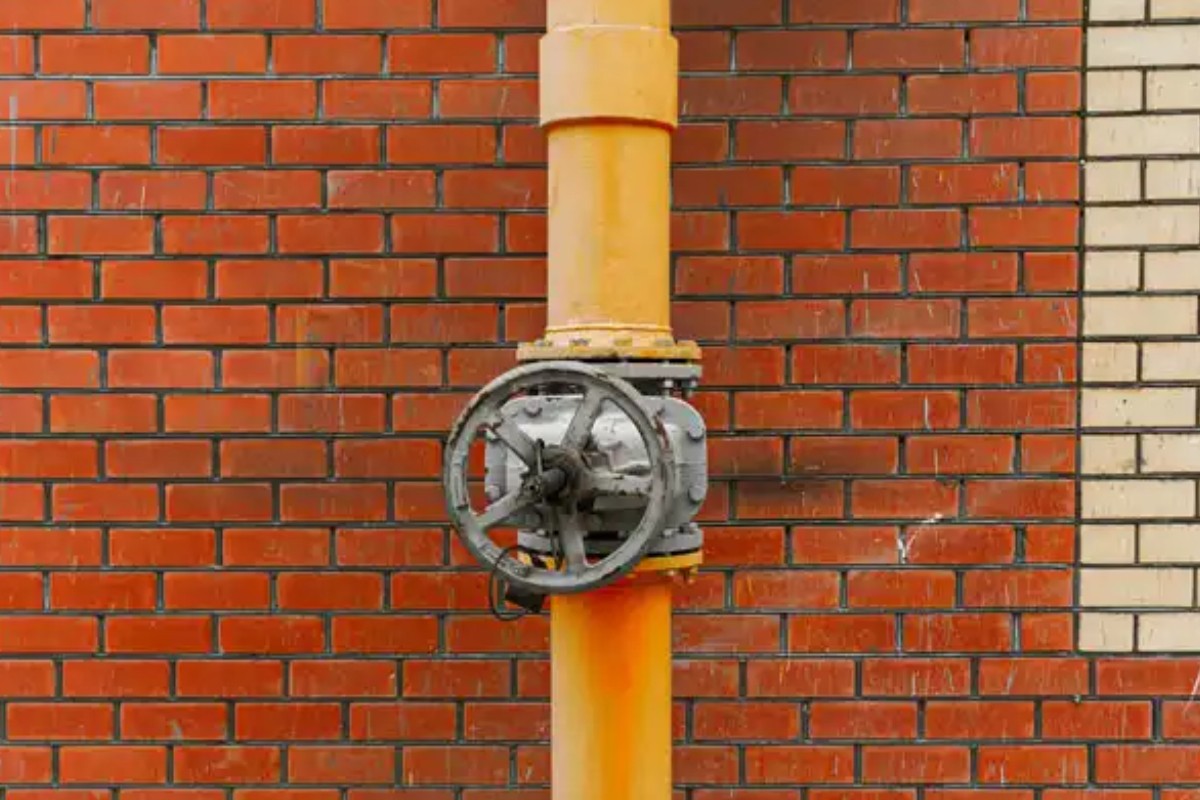Most American families stay warm in winter with electric or natural gas heat sources. According to the U.S. Energy Information Administration, 60% of homes used natural gas in 2022. While households nationwide use gas heating, five states accounted for 39% of the nation’s total natural gas consumption in 2021 — Texas, California, Louisiana, Pennsylvania and Florida.
Electric heaters have advantages — for example, they are efficient to run and inexpensive to install. However, gas heaters offer high performance and overall cost savings that electric heaters usually cannot match. A homeowner whose electric heating bill keeps creeping skyward may start considering alternative solutions.
If you’re wondering about changing your electric heating to gas, we can simplify your decision with this guide to converting from electric to gas heat. Read on to learn about each system’s advantages and disadvantages and get tips for choosing between the two.
What Are the Pros and Cons of an Electric Heater?
Electric heaters have the following outstanding benefits.
- Installation cost and efficiency: An electric heater typically costs less than a gas heater. It is also quicker and less expensive to install because it does not require a special hookup or vent to the outdoors. All the system needs is electricity, a power source almost every home already uses.
- Easy maintenance: An electric heater requires less maintenance than a gas heater because it does not run on combustible fuel, eliminating the need for the same annual safety checks. Though a yearly inspection is still a good idea, the likelihood that a neglected heater could jeopardize your family’s health is much lower.
- Heater efficiency and longevity: A single electric heater is highly efficient because it doesn’t lose heat through vented air. Additionally, an electric heater generally has a longer life span than a gas heater, so you’ll likely get more years of use out of it.
There are also some potential downsides to electric heat sources.
- Operational expense: An electric heater typically costs more to run than a gas heater. Natural gas is cheaper than electricity almost everywhere in the United States, so your monthly payments for an electric heater may be substantially higher, depending on your local energy costs.
- Limited performance: Electric heaters are less efficient than gas heaters. An electric heater takes a while to warm up the heating element, so you may have to wait a minute after turning up the thermostat to start feeling the toasty air. Additionally, note that an electric heater is often insufficient for comfortable heating in freezing temperatures.
- Systemic inefficiency: Electricity production is inefficient overall. It burns a natural resource — 63% of the time, fossil fuels like natural gas or coal — to run turbines that generate electricity. Inefficiencies occur at every step, from generation to delivery to consumption. For instance, power plants are only about 33% efficient. In contrast, natural gas is less wasteful and more environmentally friendly.
What Are the Pros and Cons of a Gas Heater?
A gas heater might be an excellent addition to your home, but you should weigh the pros and cons before committing to an electric-to-gas heat conversion.
Below are a few advantages of using a gas heater.
- Operational cost savings: A gas heater is a wise investment if you want to save money while still keeping your home comfortable all winter. Generally, natural gas is more affordable than electricity, so the overall operating costs are less. You can expect lower monthly heating bills, especially if you live in an area with cheaper gas prices.
- Performance: Gas heaters can heat a home much faster than electric heaters. When you turn on a gas heater, the gas burners operate at total capacity, immediately delivering heat into your home. This rapid heating capability is particularly beneficial when you need quick and efficient warming during cold weather.
- Better heating in frigid temperatures: Gas heaters provide sufficient heat when the mercury drops. Their ability to quickly generate and deliver heat ensures your home remains cozy even during harsh winters.
- Systemic efficiency: Gas heaters’ efficiency is partly due to how natural gas and electricity production work. Electricity production involves burning large volumes of fossil fuels before the power reaches your home, resulting in energy losses. In contrast, with natural gas, you use only the fuel you need for warmth, making gas heating systems more efficient and environmentally friendly.
Here are some downsides of gas heaters you should know about.
- Initial costs: A gas heater is generally more expensive than an electric heater, and its complex venting needs also make installation costlier. Gas heaters also require a fuel supply, so you must set up a propane tank or connect your home to the municipal gas line. You’ll likely incur more upfront costs, even if your monthly bills are lower.
- Maintenance requirements: A gas heater is higher-maintenance than an electric heater. Because it runs on combustible fossil fuel, it requires regular safety checks for dangerous carbon monoxide emissions. It also needs periodic maintenance to ensure its efficiency and performance. While some of these tasks are DIY, you’ll need to bring in a professional service tech to complete other essential checks.
- Lower efficiency: A single gas heater is less efficient than an electric heater because some of its thermal energy escapes in the vented air.
- Shorter life span: While gas heaters can work more effectively, their service life is shorter. Typically, a gas heater’s average life span is around 15 to 20 years. Improper or infrequent maintenance can reduce this service life.
How Much Does It Cost to Convert Electric to Gas Heat?
Is it expensive to replace a heat pump with a gas furnace or to change electric heating to gas? The price of converting electric heat to gas heat varies by situation.
Some homes may already have the ideal setup for a gas heater, while others may need to start from scratch. Some of the situational factors include:
- Installing a new gas line
- Extending an existing gas line from your home to the street
- Service connection upgrade
- Your home’s size and location
Much of the expense of changing to gas heat comes from installation costs. Typically, putting in a new natural gas heating system involves replacing your electric heating pump with a gas furnace, which can be pricey.
If you have a more modern heating system, you may be able to install a conversion burner that attaches to your existing system for a few thousand dollars. A new gas furnace and the vents and ductwork necessary to distribute the heat could cost several thousand more. Installing the ventilation piping needed to vent the spent gas outdoors is time-consuming and adds to the expense, as does installing a new gas line if you need one.
Your home’s size can also influence the total price tag. Larger, more complex homes require more materials and labor than a small house or condo.
Is Converting to a Gas Heater Worth It?
Is converting to a gas heater worth the time and financial investment? In many cases, yes, but the answer will depend on your circumstances.
Remember that electric heat tends to incur lower upfront costs and higher monthly operational costs. On the other hand, gas heat tends to come with higher initial costs and lower operating costs.
The result is that a gas heating system tends to save you more money the longer you use it. If you use gas heat for several years, the monthly savings on your heating bills will likely add up to more than the difference in installation costs.
Conditions in your home are likely to affect these cost savings, too. A home already set up for natural gas can make the transition more quickly and inexpensively. A home needing significant additions to accommodate gas heat will see higher initial costs and lower overall savings.
The climate where you live is an additional factor in how much gas heat can save you over time.
- Colder climates: Electric heaters’ higher monthly costs become particularly challenging for more frigid locales. If you need to run your heating system for several months in a row, those high monthly bills can quickly become unsustainable. On the other hand, because gas heaters offer such substantial utility bill savings, they are often ideal for wintry climates. If you live in a colder region and rely extensively on your heating system for warmth, a gas heater can save you considerable sums over the long term.
- Warmer climates: If you live somewhere warmer and rely only occasionally on your heating system, the lower upfront costs might make an electric heater more appealing. If you installed an expensive gas heater and then had few opportunities to use it, it might not end up paying for itself over its life span.
How to Determine Whether Switching to Gas Heating Is Right for You
To decide whether switching from electric to gas heat is a wise choice for your home, you can start by reviewing these frequently asked questions.
1. Does Your Home Have a Gas Line?
The presence of an existing natural gas line will help determine the changeover cost to convert electric to gas heat. Newer homes are more likely to have gas lines installed. If you’re unsure, you can answer this question by checking to see if you have a gas meter outside your home. You may also have other gas-powered appliances like a stove or clothes dryer.
Your new furnace can hook up to the current gas line, so you won’t need to install a brand-new one. In this case, switching to gas heat likely makes more sense because you won’t have to spend money on obtaining the necessary infrastructure.
If you don’t already have a gas line, you’ll need to install one. Call your local gas company or hire a professional to perform the task. The cost of running the line can eat significantly into your projected monthly savings, so this strategy may be less logical if your goal is to save more on your utility bills.
2. Is Natural Gas Available in Your Area?
You should also consider the availability of natural gas where you live. Check with your utility provider to see what options they offer. Historically, people who lived in more remote areas did not always have access to natural gas. But expanding natural gas infrastructure throughout the country means even highly rural areas now might.
3. Does Your Home Have a Forced-Air System?
Gas heating requires a furnace, which necessitates a forced-air system to circulate heat through your home. If your home already has a forced-air system, switching to gas heat becomes much more practical because the required vents and ductwork are already there. If it doesn’t, you’ll need to pay a professional to install them. The additional time commitment and expense may make switching to gas heat less attractive.
4. Are There Energy-Saving Rebates in Your Area?
Energy-saving rebates can substantially offset natural gas setup costs. Since natural gas is less expensive and more efficient to produce than electricity, many utility companies provide these rebates to encourage customers to switch to gas heat. Depending on your gas company, these incentives can sometimes range from a few hundred dollars to several thousand.
If you purchase an efficient Energy Star furnace, you’ll be eligible for even more savings. Buying a certified Energy Star gas furnace qualifies you for a federal tax credit equal to 30% of the total project cost with a maximum credit of $600.
5. How Much BTU Capacity Will Your Home Require?
A British thermal unit, or BTU, measures the heat energy required to raise the temperature of one pound of water by one degree at approximately 37 degrees Fahrenheit.
Heaters often receive a rating of their BTUs per hour. A heater with more BTU capacity will release more heat energy faster and keep a larger home warm. A heater with a more modest BTU capacity will put out heat energy more slowly and likely be more suitable for a smaller space.
Your home’s BTU requirements will vary, depending on several different factors. The size, location, age, construction materials, insulation quality, number of residents and ideal temperature setting all determine your thermal energy needs. For instance, a well-insulated home of less than 1,200 square feet might require a capacity of only about 50,000 BTUs per hour. A poorly insulated home or a larger house of up to 2,000 square feet might need 100,000 BTUs per hour.
6. Will You Need a New Gas Furnace Installed?
You’ll also want to consider whether you’ll need a brand-new gas furnace installed. If you have a boiler in your home, you can sometimes use it for natural gas heating. If not, you’ll need to consider whether a new gas furnace installation makes sense for your short- and long-term financial goals.
Should You Consider a Dual-Fuel System?
If you’re weighing the choice of electric vs. natural gas heat, one possible option is to combine them with a dual-fuel system that uses a gas furnace and an electric heat pump. When the weather is mild, the heat pump provides efficient warmth by condensing heat from the outdoor air. When temperatures drop too low for the heat pump to handle, the gas furnace kicks in to heat your home with more speed and power.
A hybrid system like this is ideal if your home already has gas and electric power. It gives you the best of both worlds by combining a heat pump’s high efficiency with the monthly cost savings of gas heat. The heat pump can also cool your home in the summer if you don’t have air conditioning.
With a dual-fuel system, you can also have peace of mind that you’ll always have backup heating. If the electric heat pump breaks down, your gas furnace will still provide your home with heat. Meanwhile, your electric heat pump will kick in if your gas furnace fails.
Finding a Plumber Who Can Provide a Heating System Conversion
For a heating system conversion, you’ll need a reliable master plumber with gas line and appliance experience. Here are a few tips to help you hire the right person for the job.
- Check for licensing: A plumbing license lets you know the plumber has passed a challenging examination and has the necessary knowledge and experience to handle complex jobs. You can ask to see a copy of the license and call the state licensing agency to ensure it is current.
- Assess trustworthiness: Assess a plumbing company’s reliability by checking its rating with the Better Business Bureau. You should also verify basic information, like whether the company has a physical address. Check out the website and see if the business looks legitimate, experienced and knowledgeable.
- Read online reviews: Read Google, Facebook or Yelp reviews to ensure the plumber has a solid reputation among past customers. If they’re happy with their gas line and furnace installation work, the chances are high that you will be, too.
- Schedule a consultation: Meeting virtually or in person with plumbing company employees can give you a taste of their approach. This initial consultation is your chance to ask questions about their processes, time estimates, pricing and more. Meeting with a plumbing crew beforehand can make you feel more confident they’ll do the job correctly.
Contact the Heating Experts at Dick Ray Master Plumber for an Appointment
To convert electric heat to gas central heating in your home, contact Dick Ray Master Plumber. We have extensive experience with electric-to-gas conversions and can help you get the comfortable, dependable, efficient heat you need for your home. And when you work with our pros, you’ll receive friendly, expert and prompt service every time.
Contact us online today to schedule an appointment, or give us a call us at (913) 214-8770 to learn more about our heating and cooling services.





